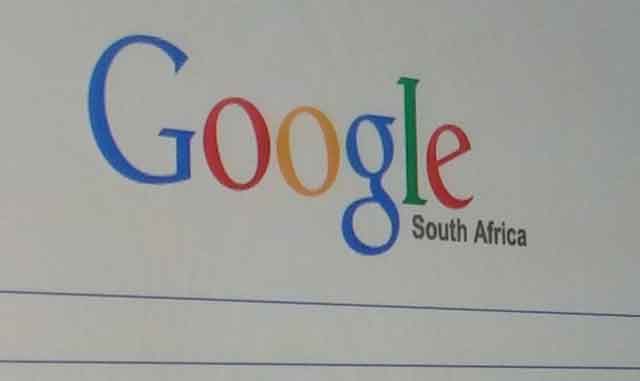 Companies changing names is not usually worthy of front-page headlines. But when Google does it, the entire world sits up and takes notice.
Companies changing names is not usually worthy of front-page headlines. But when Google does it, the entire world sits up and takes notice.
Of course, it didn’t really change its name. It simply added a new story to its skyscraper, only this one is at the ground floor.
Alphabet is the new holding company for Google, and it has caused quite a stir. The search giant’s share fired up 5% and everyone is sounding bullish about the move. Surely it’s a good thing, then?
In case you missed it, Alphabet is to turn Google into a conglomerate. Basically it wants to separate its cash cows from the fund drainers. Stuff like Google’s ads, data centres, search, YouTube and anything that is (or is almost) turning a profit stays with Google. The crazier stuff — that self-driving car, the mad scientists at Google X, life-extending start-up Calico, the Nest smart home ambitions — all move across to Alphabet.
It allows Larry Page to follow in the footsteps of his business partner and Google’s other co-founder Sergey Brin — to get away from the tedious running-a-corporation stuff and getting back to inventing. It also distances the current Google leadership from looming European antitrust action and may open the way to spin more companies off into individual entities, thus avoiding even further charges of monopolistic behaviour.
There are other reasons suggested for the creation of Alphabet, which incidentally is a popular name for companies. One such motivation may be to retain staff and give people a chance to develop more ownership in what they invent for Google, perhaps as spin-off companies that reside under Alphabet.
But I’m not buying it. Yes, Google’s becoming a broader conglomerate makes sense, but let’s not forget that it is simply trying to reverse out of the muck.
Ever since Google started behaving like an adult business, its edge started to blunt. One of the first things to get the chop when Google became a public company was the famous “20% time”. This was where Google employees could spend one day of the week working on a pet project. Twenty percent time was a big deal: products such as Gmail, Google News and apparently the mighty AdSense are all its children. When Google went public in 2004, it cited the concept as a reason for its success.
But many predicted that as a company beholden to stock prices and dividends, Google couldn’t allow its employees to be that distracted. After all, investors need their quarterly numbers. That turned out to be true: “20% time” appears to be dead and some argue it never even existed in the first place.
At the same time, Google decided to expand its holdings far beyond its core business. It started looking to space, wearables and robots. Why not? Diversification is smart and you need to diversify away from advertising revenues alone eventually. Still, it made Google’s water murky and, in business jargon, drew it away from its core business drivers, namely search and ads.
Hopefully, Alphabet will let Google regain its focus. But I doubt it. Google’s problem is not its diversification. It’s that it’s become a pretty rotten Internet company. Not rotten as in violating its famous “don’t be evil” pledge, but just being rather bad at serving its online audience.
Heresy, you say? Let’s count the failures. Google is notoriously bad at customer service. Google Groups abound with angry and despondent users who don’t get answers for their problems. To this day, Google still hasn’t figured out that customers are important. I used Google Business for a very short time before running quickly to Office 365. Microsoft outshines Google as far as customer service goes — and that is not to say Microsoft has great service.
This points to Google’s second common failure: it cannot effectively repeat innovations by its peers. Google+, for example, is a horrible social media flop. The Wikipedia rival Knol was badly conceived. Google Drive is a messy hodgepodge of user storage and nowhere close to something like Dropbox. There was that business productivity tool we all forgot the name of … oh yes, Google Wave. Google Talk has been relegated to a secondary Gmail plug-in. No one posts photos on Picasa anymore.

Why are these examples key? Because they define many of the orbits of Internet users. I daresay that if Gmail wasn’t so dominant and YouTube so vast, would Google have much relevance left for users, other than through its search engine?
Yes, go forth and buy left-of-field tech companies, as has been increasingly its habit in recent years. And do spin them into a new group. But that doesn’t solve Google’s problem that most of its success is pinned on either pre-public inventions or a few smart acquisitions of companies that were trailblazers anyway. YouTube was already a big deal when it was acquired.
If Google is smart, it should create a third company. Call it, I don’t know, Numeric. Charge it to start developing the stuff we Internet users actually use. Get it to fix Google+, to add features we really want in Docs, to revive Labs and give us fun new toys in Gmail (not pointless attempts at new “streamlining” mail apps). Use “20% time” again to invent services we need now. Maybe separate things a little from Android — I get the point of building a services bouquet that everyone has to use, but Android and my services are inseparable, almost as if the latter only exist to serve the former.
That was never the case before. Google lived on the promise of the individual Web services it could offer its users. It was inventive and filled actual gaps in our online lifestyles. Now Google only strives to keep up with its competitors, releasing half-baked tools we don’t need and investing in technologies none of us will care about for another decade. Robot cars may be coming, but you won’t be buying one any time soon.
Alphabet is like a hoarder sorting out their house by moving boxes from one side to the other. It changes little in what Google really needs to become again: an innovator that makes the Internet a better and more fun tool to use.
- James Francis is a freelance writer whose work has appeared in several local and international publications
- Author image: Paul McGavin

